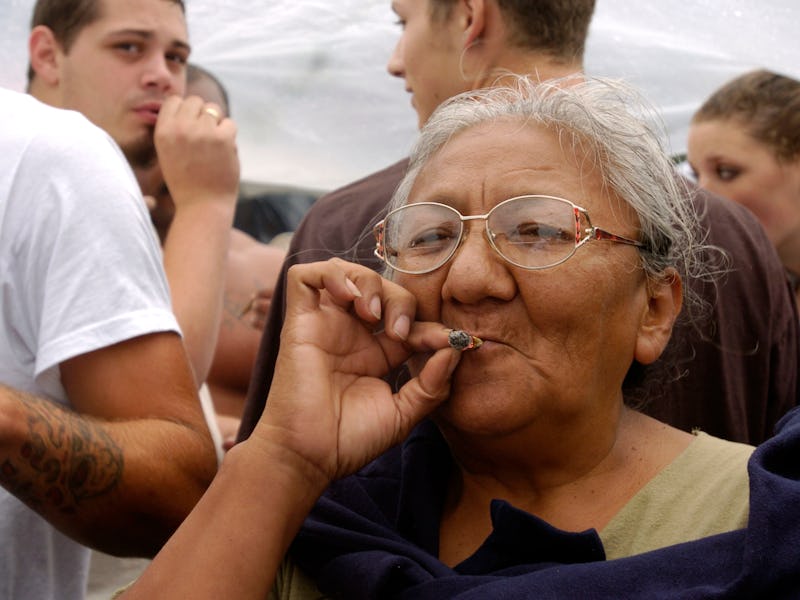Who Smokes Medical Marijuana in Each State?
A new study in Illinois finds a need in an unlikely demographic.

Illinois is launching a pilot program for medical marijuana use in the state. According to a study conducted by the Midwestern state, the most common medical-grade weed seekers in the state are older women.
The results are not surprising because Illinois does not count “chronic pain” as a valid reason for medical marijuana use. (In Colorado, a whopping 93 percent of applicants cite “chronic pain” as their reason for MMJ.) Therefore, patients need to provide a specific reason for obtaining weed — severe fibromyalgia and cancer are the leading causes of pain. The level of specificity means only those who really need it qualify, while younger people are stuck buying weed the old fashioned way: from a friend of a friend of a friend.
The results run counter to conventional thinking that men — young men, in particular — are the most common users. A recent Gallup poll reaffirms that line of belief, finding that twice as many men as women report smoking.
But how do Illinois’ findings compare to the legal states’ stoner demographics? In Colorado, where weed is selling quite well, more men smoke than women, according to the Department of Public Health & Environment. As of 2014, however, 13.6 percent of the state’s entire adult population reported use. Illinois’ program accounts for just 22,600 users.
Similarly, a 2012 study of California smokers found that nearly 1.4 million people had used weed medically. The report also found that there was virtually no difference between male and female use; everybody does it! Another study on California, though, reported that although men are likely to apply for medical marijuana, the women who sought it were, in fact, older.
Pre-legalization Washington was the closest state to Illinois’ reported numbers. According to a 2013 study from the RAND Corporation, Washington’s medical users skewed older than the national average. Nearly 20 percent of users were 50 or older. Again, like Illinois, the male/female split was pretty much even (with a slight edge going to men).
The news from Illinois seems to align with the national trend: If there’s weed available, more people will smoke. But if you need a good reason, more responsible adults, especially women, will take the legal route for consumption.
Because of the limitation against “chronic pain,” the study also upends the belief that stoners will game the system to get marijuana for minor, non-existent illnesses. A larger sample would likely look similar to California — everyone doing it — but Illinois’ restrictions could show that medical smokers can’t be pigeonholed or stereotyped. It’s just being used for its primary purpose: as medicine for those in need.